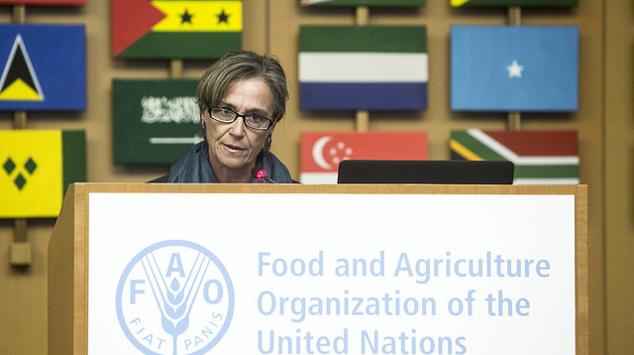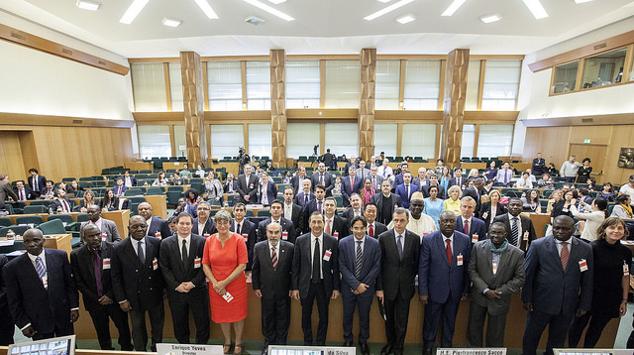The best food policies and practices
Fondazione Cariplo and the Municipality of Milan reward the most innovative cities and foster the dissemination of the best practices on urban sustainable food systems. The initiatives address varied issues related to the promotion of healthy and sustainable diets, social and economic equality, actions supporting food production and distribution, as well as the reduction of food waste. Two monetary prizes of €15,000 each have been awarded to two cities - among 33 that have submitted over 50 practices – also taking in consideration the extent to which adverse conditions (administrative, environmental, economic etc.) had to be overcome in the development of the city’s food policy or practice. The prizes will be used for peer-to-peer technical assistance and guidance to other MUFPP cities on the development of their food policies. 6 special mentions have been awarded to the highest scoring practices in each of the six categories of the Framework for Action of the MUFPP. The 53 practices submitted to the Award have been evaluated by an international Jury composed of 12 members from different contexts: various UN agencies, scientific and research institutions, the civil society, press and media, and Fondazione Cariplo. The winning practices proved, in their respective contexts, the ability to generate impact at various policy levels - economic, environmental - and social equality, thanks to the inclusion of different stakeholders in the urban food system.

Sonia Cantoni, Cariplo Foundation
The Milan Pact Awards is a novelty in the international arena forasmuch it is a global award directly addressing cities, tackling specifically urban sustainability of food cycles, and promoting a peer-to-peer technical assistance model.
The Milan Urban Food Policy Pact has been developed within the Agreement between Fondazione Cariplo and the Municipality of Milan aimed at defining and subsequently implementing the city’s food policy: Food Policy del Comune di Milano.
The winners:
- The “Baltimore Food Policy Initiative” submitted by the city of Baltimore has ranked the best practice in absolute terms on the basis of the selection criteria adopted by the Jury. Baltimore is the biggest city in Maryland with a population of 622.000 people - a quarter of residents living in food deserts. The urban food policy, started in 2009, aims at improving access to healthy food in these areas, taking an intergovernmental approach. The collaboration among various departments allowed to combine citizens’ health issues with social and economic equality. The policy is characterised by a permanent Governance and the support of a coalition of 60+ stakeholders representing organisations with missions and visions related to food access and local food systems. The food policy is based on a map – built with the collaboration of the Johns Hopkins Center – that allowed to identify areas of greatest need and drive the city’s policy. Baltimore is furthermore supporting food education and citizen engagement in the current strategies. Stephanie Rawlings-Blake is actively committed to food policy both in her capacity as Mayor of Baltimore and President of the U.S. Conference of Mayors. Baltimore Food Policy Initiative
- The “Community Dining Rooms Program” submitted by Mexico City has ranked the best practice developed in an adverse economic context. Mexico City is among world’s most populous cities, with a significant number of citizens at risk of food insecurity. It was the first city in Mexico to start a programme of community dining rooms aimed at guaranteeing the right to food to everyone and ensuring daily access to full and healthy meals at affordable prices. The model has been adopted by the Government and replicated in other cities; dining rooms are conceived not only as places for aggregation and inclusion of vulnerable groups (elderly, women victims of violence, people with disabilities) but they are also opened to youth. The programme started in 2009 and led already to the creation of 204 dining rooms in 16 districts, providing 33,500 meals every day. Local administrations and civil society organisations ensure the smooth functioning of the dining room, with the support of private sector’s donations.
6 Special Mentions:
- VANCOUVER: highest scoring practice in the category “Governance”
- BIRMINGHAM: highest scoring practice in the category “Sustainable diets and nutrition”
- LUSAKA: highest scoring practice in the category “Social and economic equity”
- QUITO: highest scoring practice in the category “Food production”
- TORONTO: highest scoring practice in the category “Food supply and distribution”
- RIGA: highest scoring practice in the category “Food waste prevention, reduction and management”
